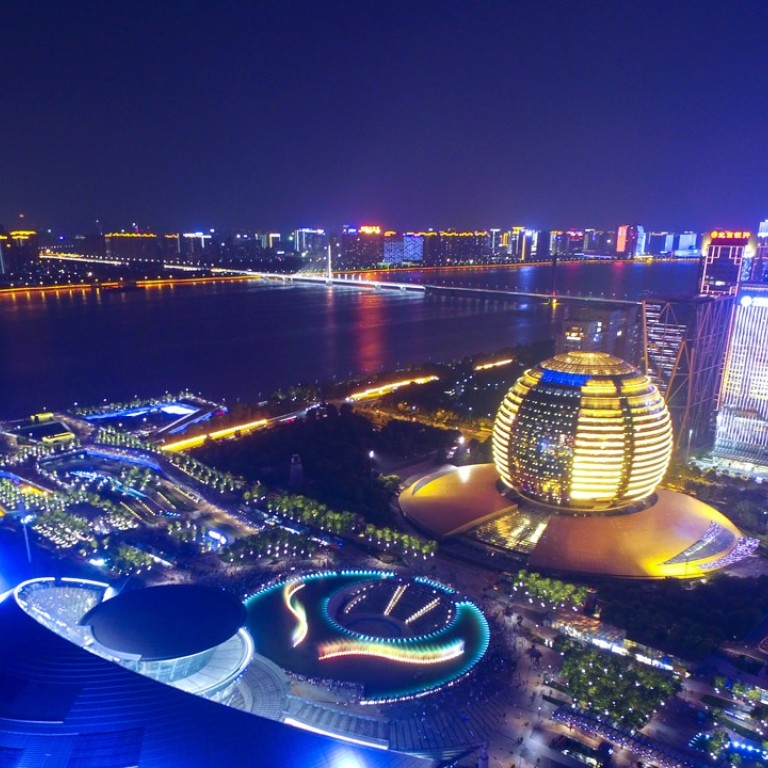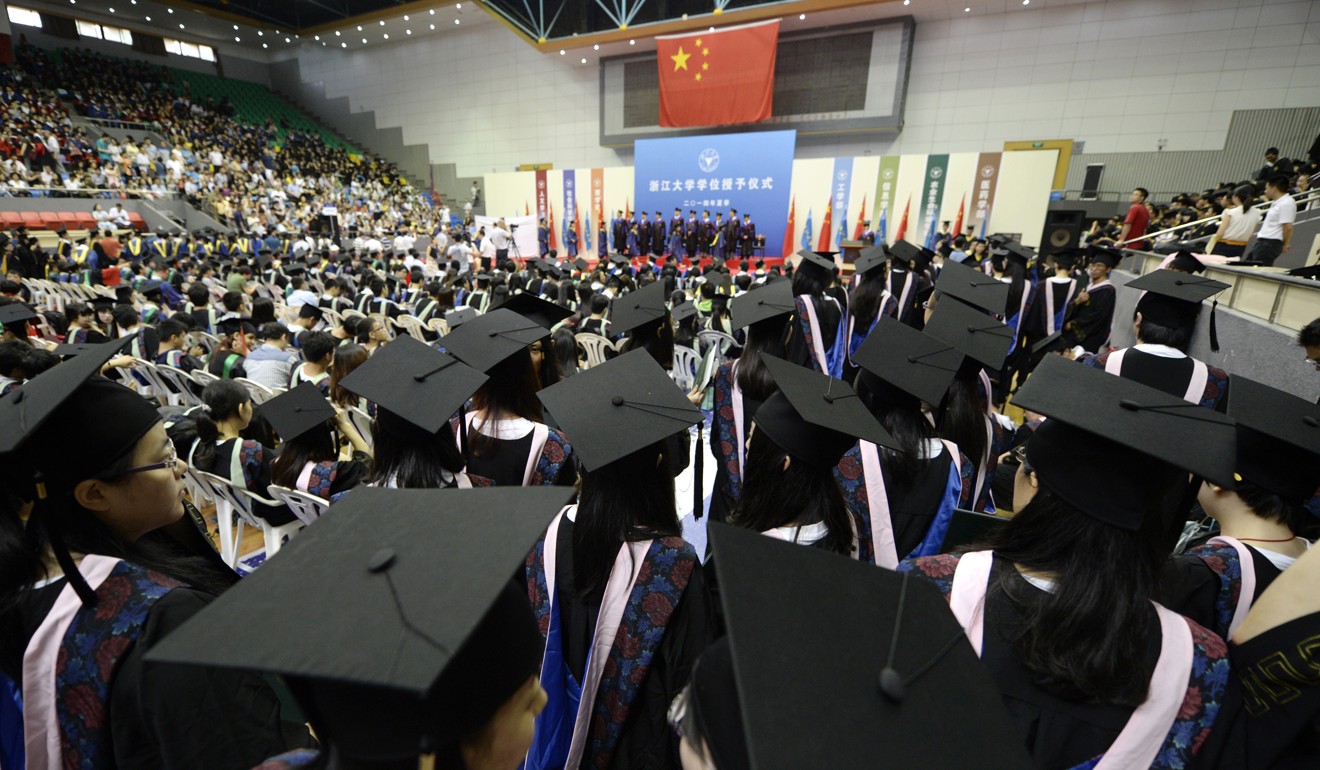
Hangzhou, China’s answer to ‘Silicon Valley’, is a hit with returning graduates, study finds
It’s home to some of China’s biggest technology companies. And now growing numbers of overseas graduates returning to China want to make Hangzhou their home too, according to a new study.
The eastern mainland city, widely regarded as China’s answer to “Silicon Valley”, was selected by 7 per cent of the 104,000 graduates surveyed by online recruiter zhipin.com as their preferred location to live and work.
Although that pales compared to Beijing and Shanghai, which were each chosen by about a quarter of the respondents, it differs in one important way: its apparent attractiveness to overseas-educated Chinese graduates grew, whereas theirs declined, according to the survey.
The share of jobseekers opting for Hangzhou was up by 0.7 percentage points from last year, making it the fourth most popular city among the group.
The results appeared to suggest established major cities are losing some of their shine with Chinese people returning home after studying abroad.

Hangzhou, the capital city of the eastern coastal Zhejiang province, is home to internet giants like Alibaba Group Holding and NetEase. The report said its status as a booming “new economy” – one based largely on technology start-ups – made it more attractive to young graduates who have attended universities and colleges abroad.
“Hangzhou encapsulates the rise of emerging tier-one cities with rapid urban development and its increasing international appeal,” said the report released on Wednesday.
Of those surveyed, 66 per cent hold a masters or doctoral degree, while the remainder hold a bachelor’s degree. The data was collected by zhipin.com from its jobseekers, who are asked to select their preferred city when uploading their personal information.
Beijing and Shanghai, China’s two biggest cities, retain their popularity with the returnees thanks to their established status for economic vitality and urban development, according to the report.
The appeal of a role in the new-economy for fresh graduates was underlined by the most sought-after employers to emerge from the survey.
Alibaba, which owns the South China Morning Pos t, received the most attention in terms of searches, job applications and followers, followed by arch-rival Tencent Holdings and Chinese securities house Citic Securities.
In 2017, the number of Chinese students heading abroad rose 12 per cent on the year to 608,400, according to education ministry data. At the same time, a record 480,900 graduates returned to Chinese soil, up 11 per cent from a year ago.
China is expected to attract a lot more overseas talent over the next five years, as well as retaining its status as the world’s largest source of outbound students.
An earlier joint report from Forbes China and immigration consultancy Wailian Group said the country represents a rare case in the history of “global talent mobility”, in which the inflow and outflow of talent are keeping pace with one another.
Countries that attract well educated global talent and have strong research capabilities tend to encourage their own students to study at home, while those which produce a lot of outbound students are often less attractive to global talent.

